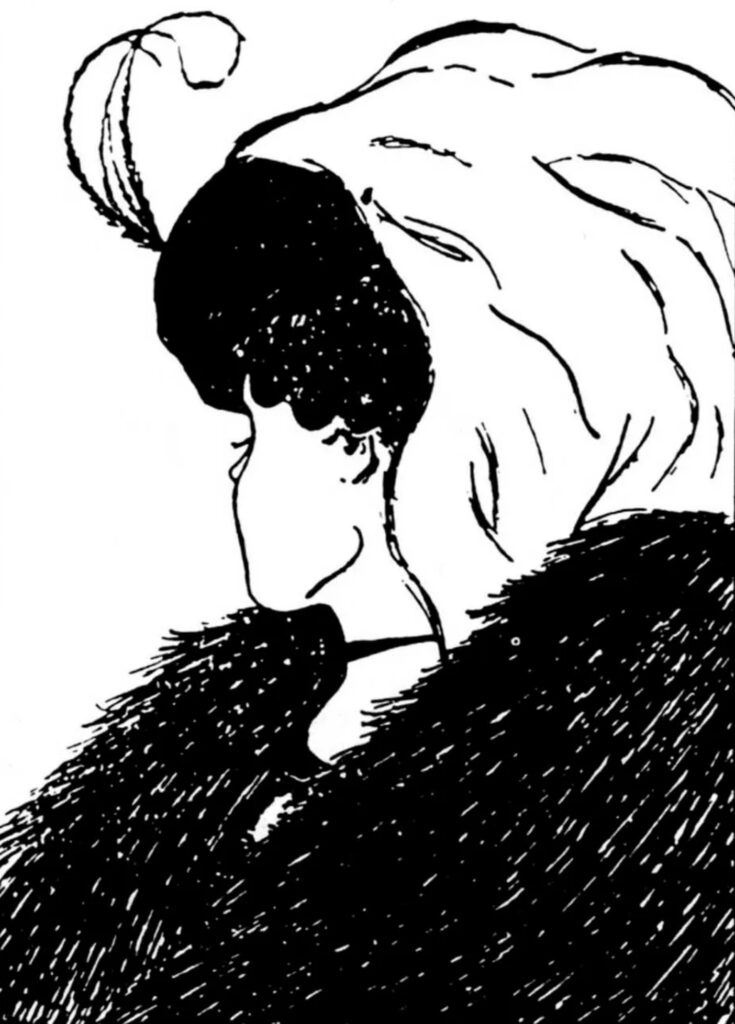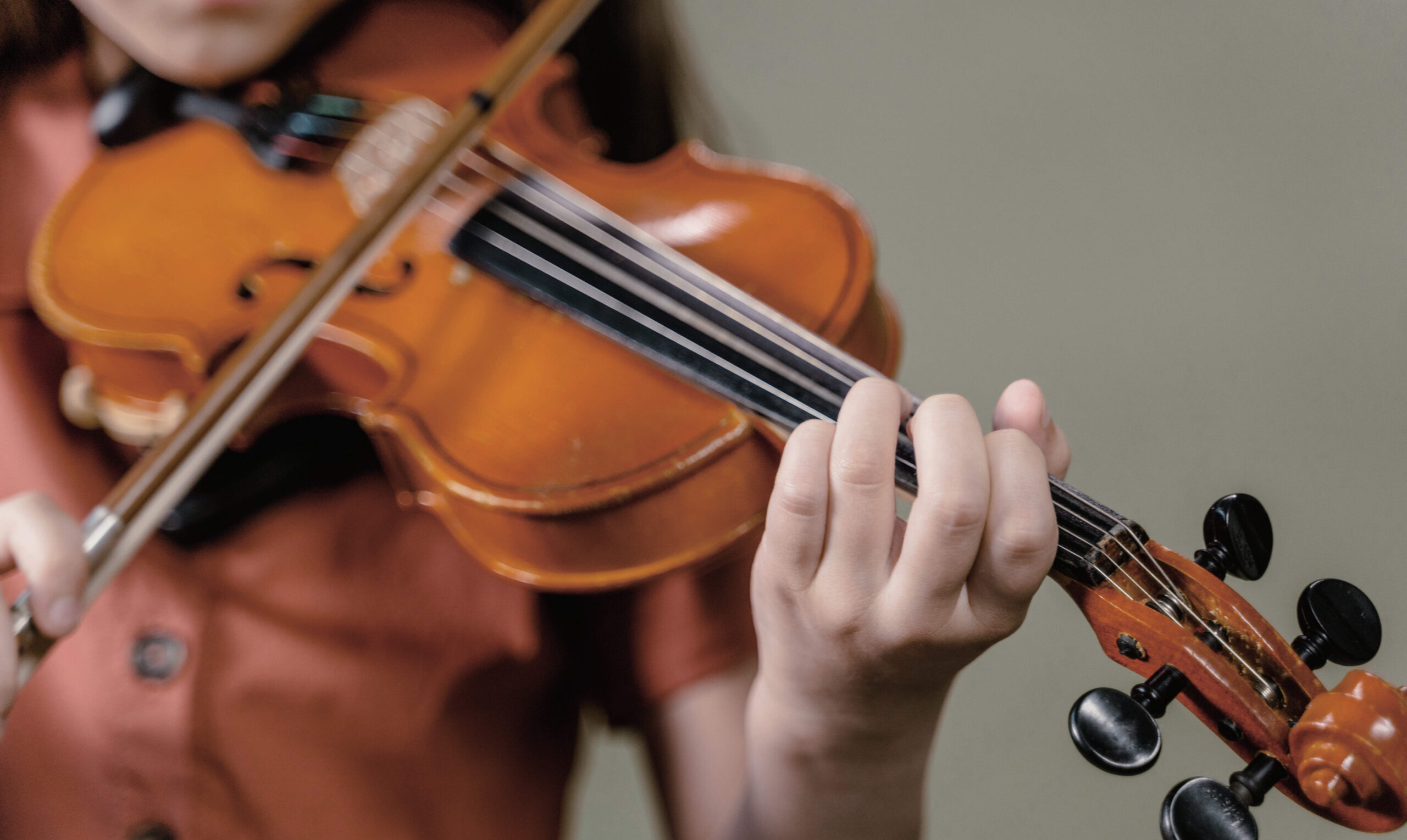“Not surprisingly, Suzuki violin was the most difficult area of de-coercion for me… until I realized that Taking Children Seriously requires a total commitment, not an incremental implementation. And then, like the Gestalt picture of the two faces, my consciousness completely shifted. I suddenly understood Taking Children Seriously. … When I finally let go of my entrenched theory about music, my daughter was able to admit that she did not want to play violin.”
– Melissa
From the archives: First published in Taking Children Seriously 30, 1999
In the beginning I was a zealous attachment–style mom. Cloth diapers, family bed, extended nursing on demand. We never owned a crib, pacifier, or baby bottle. Not even a stroller. I carried my daughter on my body, in a sling or backpack. In the beginning, AP worked for us.
During the toddler years I discovered Faber and Mazlish. I thought How to Talk So Kids Will Listen and Listen So Kids Will Talk was the greatest thing since Velcro diaper wraps. I dutifully memorized and applied the recommended script. And I wondered why it felt so inauthentic with my daughter. But at least it gave me a lifebelt to grab onto when I felt myself out of control, drowning in a sea of frustration and rage.
By the time we hit the preschool years, I had read lots of John Holt. I knew that unschooling was the way to go for us. My daughter had taught herself to read at age 4. By age 5 she was voraciously devouring stacks of children’s books from the library every week. I felt successful. Yet whenever I tried to get her to do a project, be it working with pattern blocks for ‘school’ or making a craft for ‘fun’, she strongly resisted.
I love music. I sing and I play several musical instruments. I wanted my daughter to experience the same joy in music that I have. When she was five, I bought her a one-eighth size violin and we started Suzuki-method violin lessons. I was convinced that Suzuki was good for my child. I read John Holt’s Learning All The Time, in which he wrote favorably of the Suzuki method. I read Suzuki’s own books and his philosophy made sense to me; it seemed child-oriented, respectful of the child’s natural developmental growth. I did everything to research this venture—everything but ask, and truly listen to, the actual child involved, my child.
Our conflicts began almost immediately. The required daily practice was inevitably a struggle; each day I had to invent yet another game or reward to get my daughter to practice. Even the actual lesson times were a struggle; my daughter was always fidgety and distracted. I discussed this with the teacher, and with other Suzuki parents. I was assured that such behavior was very common, once the novelty of the instrument wore off. I was told that eventually, after a few years of training, the child typically settles down and becomes self motivated. In the meantime it was the parent’s job to motivate the child. I felt exhausted, strained by the weight of a huge burden on my shoulders.
We had been involved with Suzuki for six months or so when I was visiting my friend Suzi. One evening as the children played, I was absent-mindedly scanning a copy of the local newspaper when I found an interesting article. The article was about unschooling and children’s learning. And I was intrigued. It turned out that Suzi knew the writer, Naomi Aldort, and she introduced me to her.
I discussed my Suzuki conflict with Naomi. An accomplished musician herself, Naomi gave thumbs down on the Suzuki method. ‘Coercive’, she said of the Suzuki method. An agenda imposed by parents, disrespectful of the children’s own desires. It was hard for me to grasp her point of view. I had never heard anything but praise for the Suzuki method. I was convinced that it is good for children to play a musical instrument and that it is important to begin musical training at a young age. But I could not entirely deny the reality of my experience, which had been so negative.
Naomi introduced me to the concept of democratic schools, as an example of how children are capable of setting their own agendas. I read Free At Last, about the Sudbury Valley School, and I was fascinated. I tried to implement some of these ideas, as I understood them, with my daughter. We tried setting goals and making a Sudbury-Valley-style contract to achieve them. I wondered why my daughter rarely fulfilled these contracts, especially the ones having to do with violin practice. Of course if I had known about Taking Children Seriously then, I would have realized that there is no such thing as a non-coercive school, and that contracts are coercive, however nicely they are worded. But I didn’t know that then, and I felt perplexed. There had to be a missing piece to my parenting puzzle.
In search of a solution, I turned to the Internet where I discovered the Radical Unschoolers’ List. On the RU List I found occasional references to Taking Children Seriously, usually accompanied by disparaging remarks. I was intrigued by this mysterious Taking Children Seriously. I figured that anything that so clearly incensed so many people who described themselves as ‘radical’, had to be worth investigating.
On the Taking Children Seriously list, I immediately felt at home. I instantly liked the straightforward style of conversation, and I was thrilled to find a rational, cohesive philosophy to articulate and support what I feel in my gut to be true. My spouse was also thoroughly intrigued by Taking Children Seriously. We had long discussions about Taking Children Seriously ideas and how they applied to our family. We began to incorporate Taking Children Seriously into our lives.
Not surprisingly, Suzuki violin was the most difficult area of de-coercion for me. As a result of my relentless covert and overt coercion of music practice, both my daughter and I were very confused in this area. My daughter’s behavior baffled me. When I offered her the opportunity to quit, she would become extremely upset and loudly protest. ‘But I want to play violin’, she would scream through her tears.

This scene was repeated several times, until I realized that Taking Children Seriously requires a total commitment, not an incremental implementation. And then, like the Gestalt picture of the two faces, my consciousness completely shifted. I suddenly understood Taking Children Seriously. It was a pivotal moment for our family. When I finally let go of my entrenched theory about music, my daughter was able to admit that she did not want to play violin.
It has now been about two years since we quit Suzuki, and as we have deepened our understanding and application of Taking Children Seriously, the results have been incredible. Our relationships are true and authentic. We are able to resolve our conflicts effectively as we become more skilled at solving problems. With Taking Children Seriously, my child is no longer my adversary; I enjoy this child again. I see in her a strong, articulate, confident, and fully alive human being who clearly knows her own mind and is following her own passions. What greater gift can there be for us, for the children, and for the world?
See also:
- It’s your house, your income, your everything; and if the kids don’t like it…
- Home education law—Phillips v Brown
- Limiting your children’s screen time?
Melissa, 1999, ‘When my view changed, our lives changed’, Taking Children Seriously 30, ISSN 1351-5381, pp. 9-10, https://takingchildrenseriously.com/when-my-view-changed-our-lives-changed
